Video and photos: Andrew Goff
PREVIOUSLY
###
Standing on the corner of Sixth Street and West Avenue on Saturday morning with her dog and her girlfriend, Crystal, a homeless person who has been living in an encampment located in a greenbelt behind the Humboldt County Office of Education for almost four months, looked at a pile of her stuff, wondering what she was going to do with it.
Crystal’s family’s camp was among the roughly 30 camps evicted from the site early Saturday morning by the Eureka Police Department. As folks gathered up their belongings, some were moving to other sites, some had been connected to shelters, others were still figuring out their next steps.
“We have no idea what we’re doing,” Crystal told the Outpost. “My stuff is sitting here on the corner. Hopefully, some of us can come together and put some money together and get a room or something for a day or two, but that’s not gonna last forever. And hotels are expensive.”
ABOVE: A resident of the camp packs her things on Friday;
BELOW: Activists gathered to protest the eviction
The eviction was carried out by the Humboldt County Office of Education (HCOE), which owns the property, with help from the Eureka Police Department. Volunteers from the PacOut Green Team and New Directions were also helping clear out the trash from the site. Sgt. Leonard LeFrance told the Outpost that this particular encampment had become a “hotspot for crime,” and that his department got frequent calls to the area. The camp was also full of trash and environmental hazards, including syringes and propane tanks. And much of the waste was ending up in Cooper Creek, which runs through the property and out into Humboldt Bay.
“It’s gonna take the HCOE a fair amount of time [to finish clearing out the waste], probably at least four or five more cleanups,” LaFrance told the Outpost on a walkthrough of the site, just after the eviction. “There’s just so much trash … I mean, think about how much damage this caused.”
The environmental impact was echoed by Kim Bergel, a Eureka city councilmember and soon-to-be mayor, who said she was extremely frustrated by the situation. With tears in her eyes, Bergel said that she felt frustrated by the whole situation. She said she completely understood how difficult it is for people to be pushed out of the place they’re living, but in this situation, she felt like there was no other option.
“The environment out here is just deplorable,” Bergel told the Outpost. “And no one should have to live like this either. We need everybody to pick up an oar and figure out what we can do to support each other. This is just, this is not okay, what we’re doing as a community, as a nation – where we’ve got all these people that are living in squalor and poverty. It’s horrible.”
Several community members had shown up to support those being evicted, providing food and water, or helping them move their belongings. Some people were even offering rides to other shelters or camping locations. Others had come to protest the eviction, holding signs, chanting and occasionally shouting at the police officers as they escorted people off of the property. A couple of protesters told the Outpost that they felt evicting people from their camps was not a solution to the problems associated with homelessness, and would put the people who lived there at greater risk.
“Encampments help prevent violence because people can take their meds and sleep…because they have each other protecting them,” Tommy, a student at Cal Poly Humboldt told the Outpost.
Some protesters said that they don’t think the eviction was really about environmental concerns, but more about criminalizing the homeless population. When asked if it made a difference that it was private property, one protester said that shouldn’t matter.
“There’s no private property on stolen land,” Liam told the Outpost. “This is really a Eurocentric and white supremacist construct, to have private property. It’s not like they’re camping in someone’s backyard. Like, this is just land that’s sitting here. It’s not being used and people need a place to stay no matter what.”
LaFrance said that EPD and other community organizations had been visiting the encampment for weeks leading to the eviction, trying to connect people with shelters or other services. Some people were successfully connected to the Betty Chinn Foundation or the Rescue Mission. And some folks were directed to other legal camping locations in the city. But many folks were not willing to accept the help, LaFrance said.
Protesters and cleanup crews verbally clashed on numerous occasions during the morning
But some of those being evicted said they didn’t feel there was much outreach effort at all. “They didn’t give us no references, no resources,” Crystal said. “They didn’t. They just said, ‘you got to be out in like a week. And that was it.”
Jacob Rosen, managing mental health clinician for the City of Eureka, has recently started working with the EPD’s Community Services Engagement Team (CSET) to help address some of the ongoing issues related to homelessness and mental health. Rosen said that he has been visiting this particular encampment since the beginning of August, trying to connect people with resources and help them find housing opportunities. Rosen said that he felt that the team was able to connect a fair amount of people to resources, but that he wished there could have been more. He added that he hopes that as the city builds its mental health response services, that there will be more opportunities for outreach to the homeless population.
“I think for a lot of folks, they feel so disenfranchised in general, that it’s difficult, especially when it’s under this context,” Rosen told the Outpost Saturday morning. “In the future I’d like to collaborate a little bit more with a couple other housing agencies, with the county and the city, to get more of a presence out here on a regular basis, maybe independent of law enforcement, so that we can provide that service. So it’s not like ‘hey, you’re being evicted and here’s this [list of services.] Just to provide a little more consistency to the message.”
The Outpost was given access to the property during the cleanup. Below are some photos of its condition.
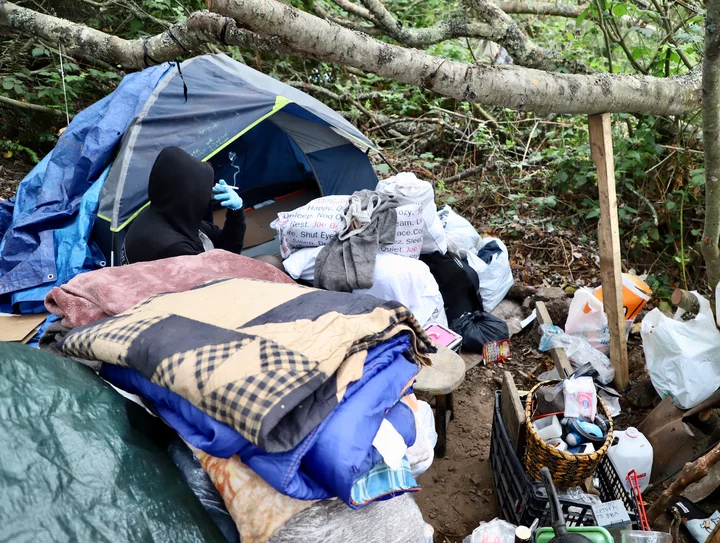
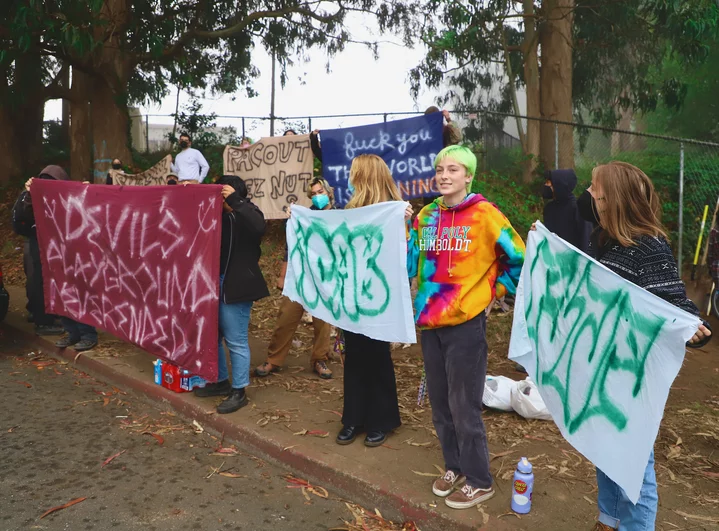
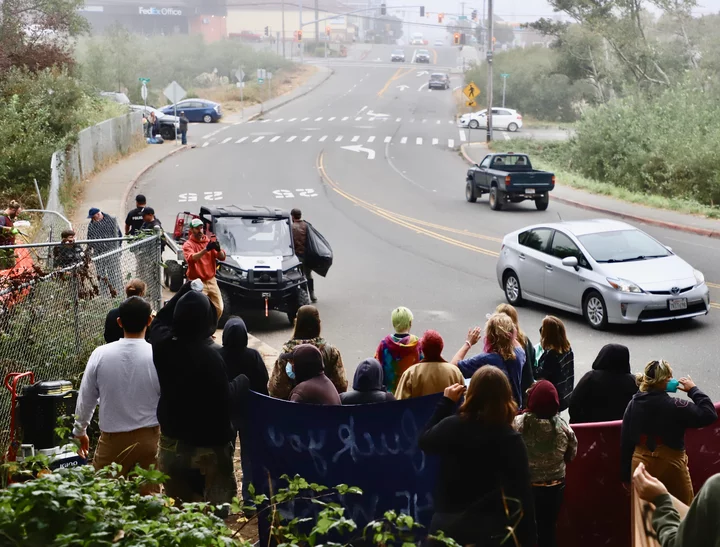

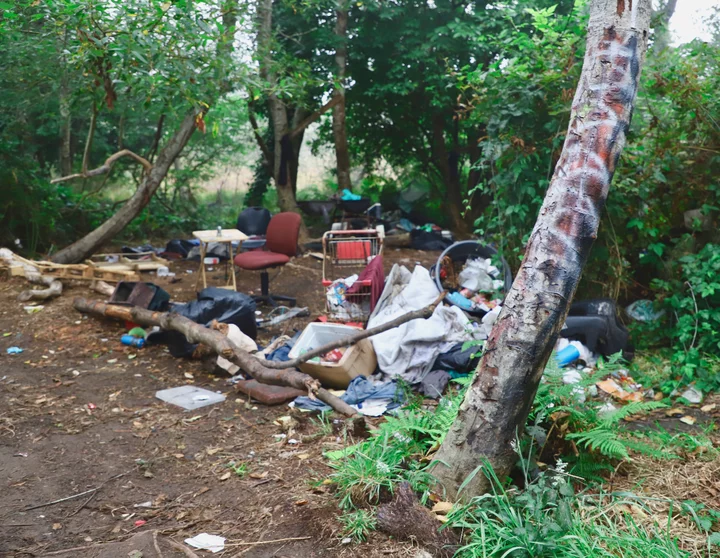
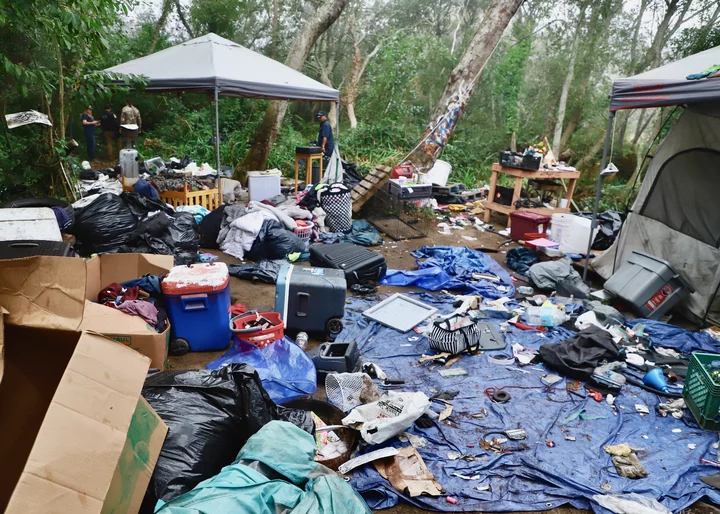
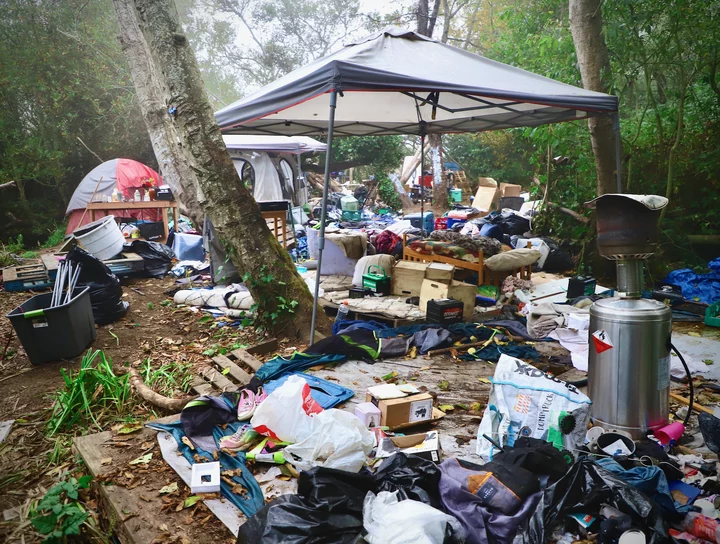
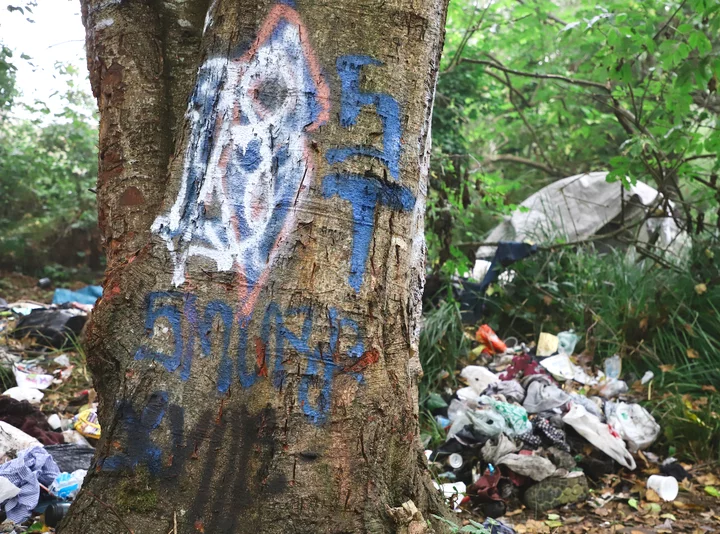
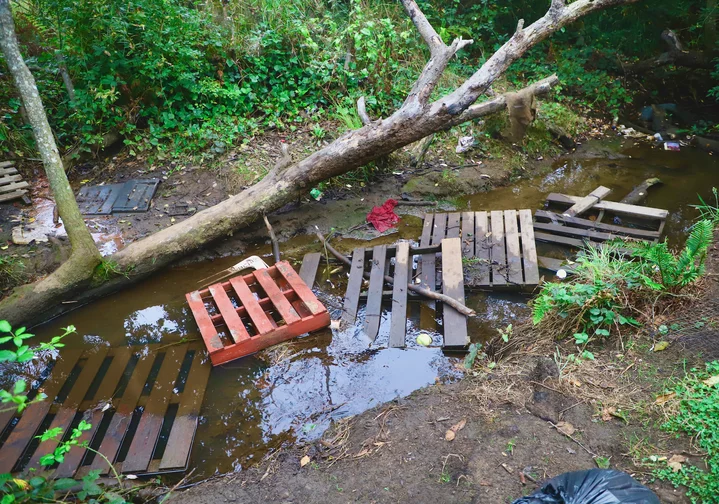

CLICK TO MANAGE